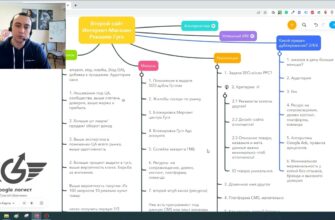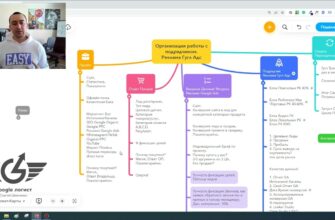The term “relevance” in its basic meaning describes the degree of correspondence or correlation between two entities. When talking about the relevance of an ad, they mean the level of compliance of the keywords and landing page specified by the advertiser with the user’s search query.
When ranking competing keyword ads, Google Ads uses relevance as one of its ranking criteria. It also affects the cost per click. The more relevant the ad, the cheaper it is and the higher it is placed on the search results page.
What is ad relevancy in contextual advertising?
Relevance of ads in contextual advertising shows how accurately the ad responds to the user’s query. It determines both the cost per click and whether this or that ad will be shown in principle.
How many calls and sales will I get by ordering contextual advertising from you?
I need to calculate the conversion of my website Describe
the task
in the application
Calculate potential ad revenue Google
contextual advertising calculator
The main goal of search services is to provide visitors with the best relevant information. After all, if suddenly Google prefers to increase profits by showing ads that do not match the user’s request, then its audience will begin to decrease, and then advertisers will gradually leave.
When calculating the quality score, the algorithm checks the relevance of the ad and evaluates it as one of the main criteria that characterize the usefulness of the advertising offer for the consumer.
The Quality Score is determined based on three parameters:
- The predicted CTR value for the keyword. If it is identical to the search query, your ad will receive the highest ranking for this criterion.
- Ad text relevancy.
- The degree to which the page matches keywords.
Advice! All this data can be found in the “Keywords” module for a given campaign. Always analyze them to increase the effectiveness of advertising.
If you move the mouse cursor over the status of the key request, the corresponding information window will appear:

What does a relevant and irrelevant ad look like?
The sign of a relevant ad is the presence of keywords in both the title and the body text block. Also, ads should contain a link to a high-quality landing page and be adapted for mobile devices.
For example, a user wants to go on a tour of the main attractions of Lviv, for which he is looking for an online travel company:

How many calls and sales will I get by ordering contextual advertising from you?
I need to calculate the conversion of my website Describe
the task
in the application
Calculate potential ad revenue Google
contextual advertising calculator
If an ad contains an entire phrase or individual words from a search query, the system will highlight them in the search results. This is a good sign – you are doing everything right and the ad will have a good CTR (click-through rate).
The ad in the example below is not specific and, conversely, is not relevant:

Most likely, a click on it will be more expensive and the conversion will be lowered. It does not exactly match the search query – there is no clarification that the store sells women’s models of down jackets.
The ad will only appear in search results if there are no competitors, as it is likely to have a lower CTR.
And in this example, the contextologist used automatic substitution of search phrases, while setting the wrong settings, so the request “sewing kit” leads to a page with children’s creative kits:

How to increase relevance in contextual advertising?
To understand how relevant an ad is to a query is quite simple using the CTR value. If it is low (less than 8%), then you are clearly moving in the wrong direction, and a CTR of more than 15% is considered high.
To increase the relevance of PPC ads:
- Use keywords in the title and body of the ad. They are entered manually or using a special dynamic algorithm.
- Include similar or similar search terms in ad groups. This will facilitate the compilation of relevant structures. For example, it would be difficult to create one high-quality ad for Spanish and Italian courses.
- Think about semantics well. Don’t forget to add negative keywords to the appropriate list.
- Formulate easy-to-understand and catchy text descriptions, add calls to action, data about special offers, fill extensions as much as possible, and add-ons.
How to increase the relevance of the landing page?
Relevance in contextual advertising is related to the quality of the site page where the advertiser’s ad leads. It should contain a detailed description of the promoted product, contact details for quick communication or the ability to order a product or service.
Use the following guidelines to improve page relevancy:
- Choose the most relevant page for each ad. It is better if instead of the main one, you indicate the site page with information about the advertised product.
- Fill your landing page with useful content. This will help keep the user on the site longer. And it is not at all necessary to saturate the text with key phrases.
- Check the relevance of information. If the ad mentions a discount, then the site must provide detailed information about it.
- When a promotion strategy involves the use of one-page resources, you should develop separate sites for each offer, adapting them to a specific ad and search queries.
- Test page loading speed and correct display of page content on popular types of devices and for the most common screen resolutions.
Relevant offers are not characterized by information redundancy. They should demonstrate options for solving a problem or answering a question in the most accessible way. Well-designed ads maximize your return on investment and increase your conversion rates.


















